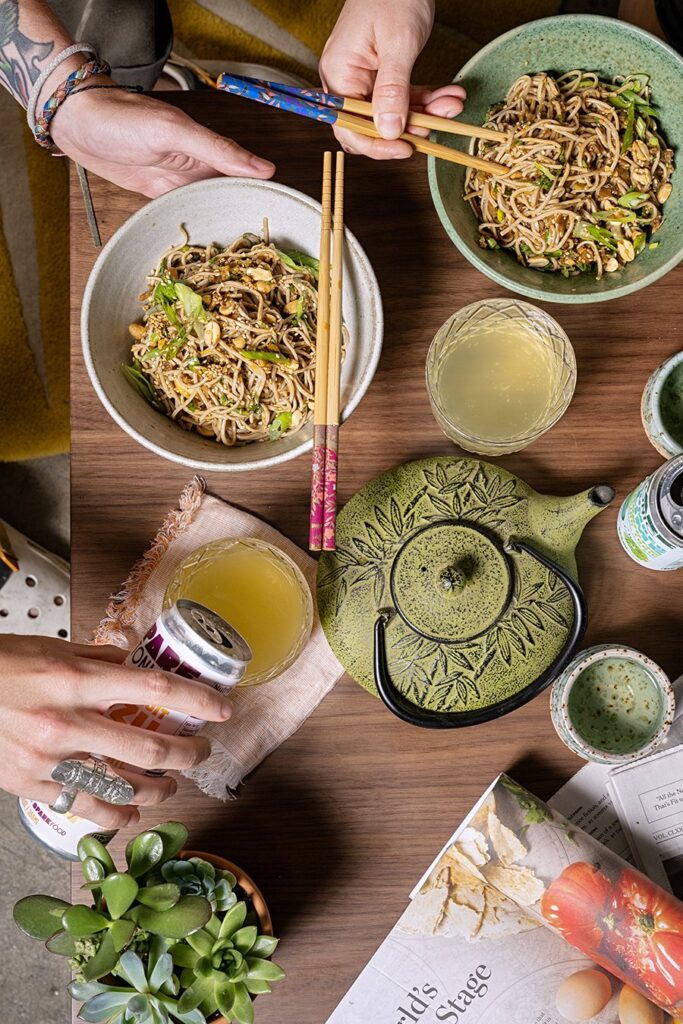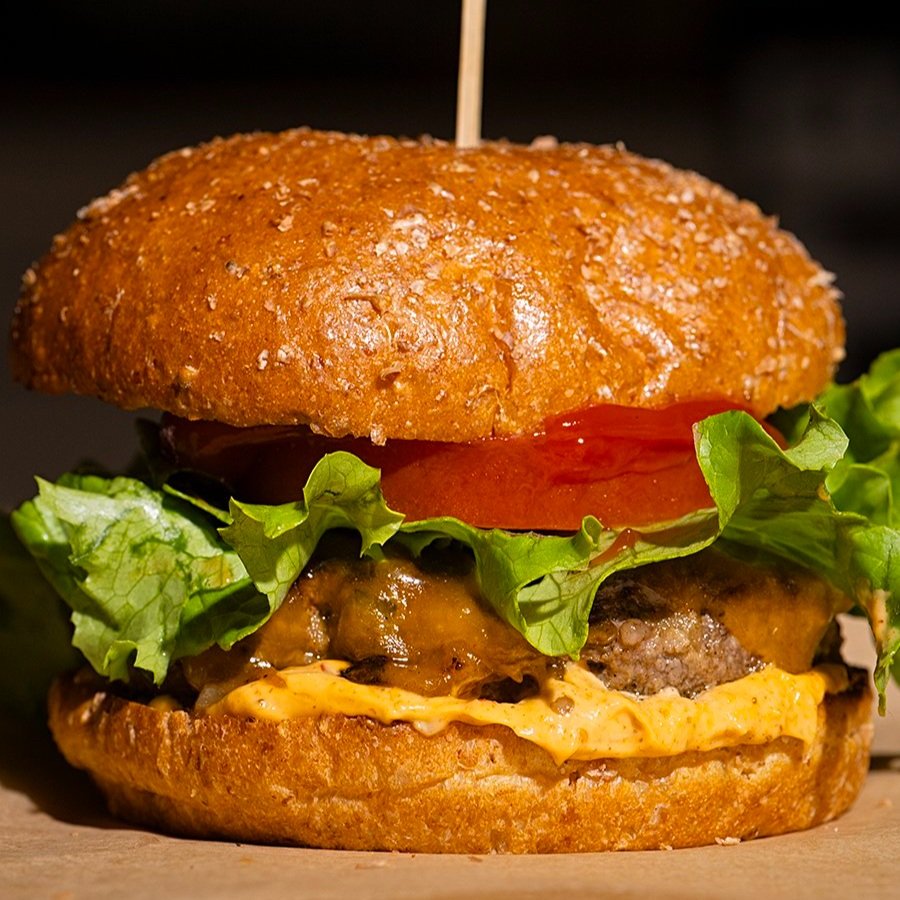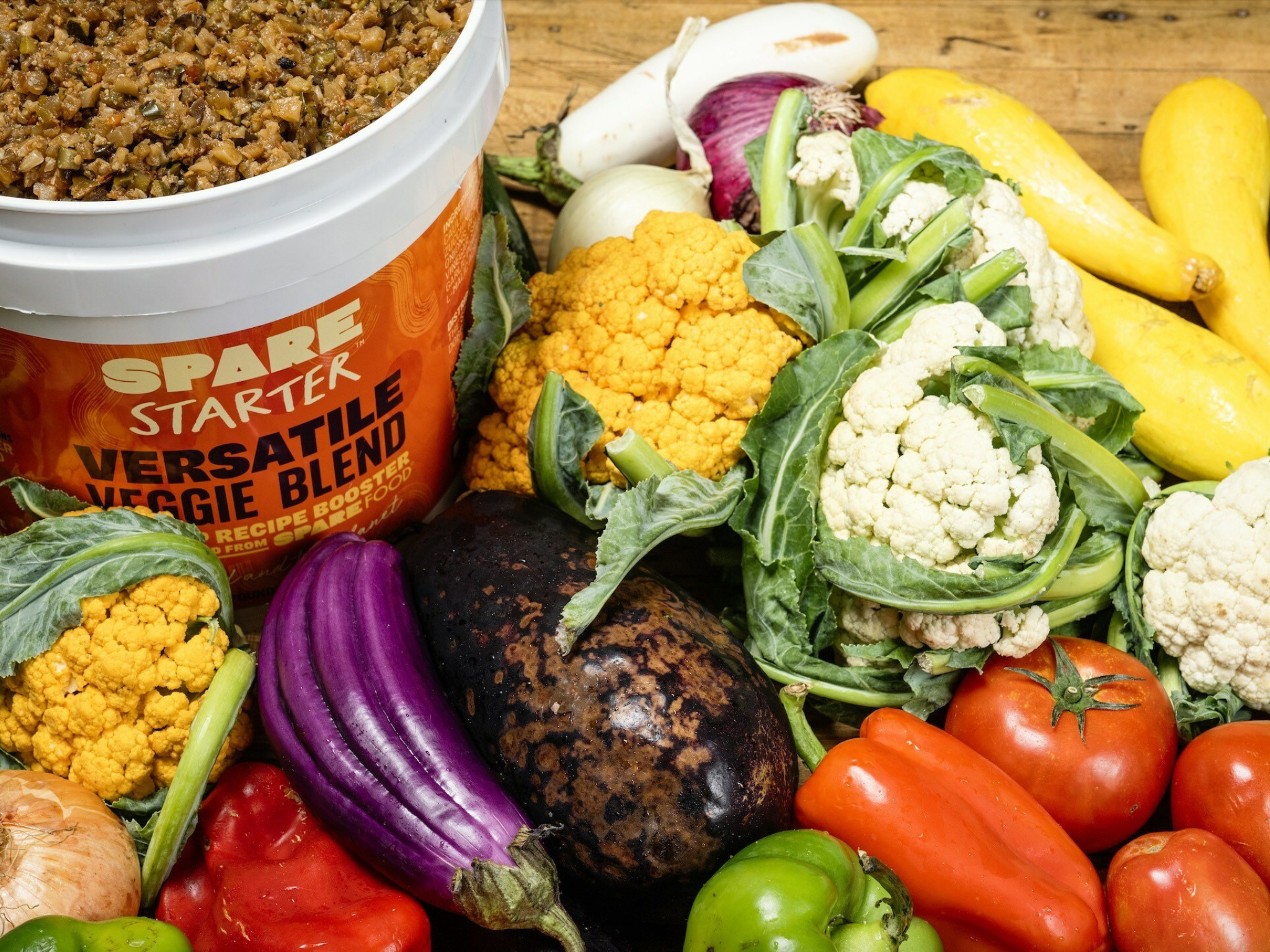Food Waste or Wasted Food? Spare Food Co. Bets on Upcycled Vegetables for Blended Meat
5 Mins Read
The Spare Food Co. has introduced Spare Starter, a plant-based “culinary shortcut” made with a blend of upcycled produce and spices that can replace a portion of conventional animal protein in dishes like burgers, meatballs and chillis.
The startup aims to spotlight food waste with a solution that can save months of prep for foodservice kitchens, and tons of produce, water and GHG emissions.
Adam and Jeremy Kaye come from a four-generation legacy of culinary entrepreneurs. So it felt natural that one day, the former (a chef) would join the latter (with stints at Nike, Banana Republic and Patagonia) would join forces to create their own food business. And that’s exactly what they did in 2021 when they founded The Spare Food Co.
The primary aim was to “fix the broken food system”, one that “views overlooked ingredients as food waste, versus what they really are: wasted food”. It is, indeed, a screwed-up sector. In the US, where Spare Food Co.’s home country, 38% of all food went unsold or uneaten last year (i.e., it was surplus), but only a tiny portion was donated to the 13% of Americans who are food insecure, while some was recycled.
Overall, 33% of the country’s food supply went to waste – in landfills, down the drain, or even just in the fields, rotting. This equates to 78 million tons of food, which is enough to feed all of California, New York and Florida for a year, combined. Of all this waste, produce accounted for over a third (34.1%). That’s a lot of fruits and vegetables.
To tackle this issue, the Kayes’ startup’s first launch was a probiotic sparkling tonic made from upcycled whey – now, it’s moving into the plant-based world with Spare Starter, a novel ingredient that makes use of surplus farm produce. “Our aim isn’t merely to add another product to the market,” says Adam. “it’s to introduce a groundbreaking solution environmentally and economically.”
Championing vegetable scraps to cut food waste

Spare Starter is made from six vegetables – utilising parts that are usually trimmed or discarded, including leaves and stalks – and a spice blend. The result is an allergen-, gluten- and fat-free ingredient that has an adaptable flavour profile, which enables chefs to experiment with it in sauces, braises and soups, fillings for tacos and wraps, toppings for noodles and pizza, and even waffle batter, among others.
Akin to an elevated version of mirepoix, it can also be used to replace a portion of protein in plant-based dishes like burgers, meatballs and chillis. I say portion because, by itself, the starter only has 5.7g of protein per 100g, much less than conventional or plant-based meat. But – given the base is just vegetables – there’s 9g of fibre in here, and what it (relatively) lacks in protein, it makes up for in its ability to curb food waste, cut costs, mitigate labour shortages, and save time.
“Spare Starter’s genesis is rooted in my firsthand experience with what is wasted on farms, along with the inefficiencies and waste issues that arise in kitchens,” explains Adam, noting that the new ingredient can optimise “kitchen operations by reducing labour and time”, and promotes a plant-forward diet while significantly cutting food waste.
To quantify these impacts, decarbonisation platform Planet FWD conducted a life-cycle assessment on Spare Starter, from farm to end of life. It revealed that, over a year, swapping 160 lbs of conventional vegetables per week with five pails of the shelf-stable starter (equivalent to about 600 portions) would save 4.5 tons of GHG emissions – that’s like driving from Los Angeles to New York City 4.5 times – and nearly 200,000 gallons of water.
Additionally, kitchens would save over 2,000 hours of manual prep work, while 1,700 lbs of food waste (in the form of trims and scraps) would be salvaged. Overall, it would keep 5,800 lbs of food from being surplus to needs.
Blended meat for college students

The Spare Food Co.’s new ingredient is specifically made for foodservice and catering operators, who can use the ready-to-eat ingredient in multiple ways. Season it and add it to a noodle bowl or a vegan puttanesca sauce. Use it as part of the wet mixture for savoury waffles. Squeeze a little liquid and add it to beef to make a blended burger, or utilise it as a binder for a blended chorizo. These are just the startup’s suggestions, but you get the idea.
One of its early adopters is the Harvest Table Culinary Group, a college caterer that’s expanding its existing partnership with The Spare Food Co. to include the starter across its entire network of campuses, which includes the likes of Brandeis University, the University of Rochester, Wake Forest University, and Elon University.
“From the very beginning, we have had a close collaboration with the culinary leadership at Harvest Table,” says Jeremy. “With our partnership growing, we hope to show the rest of the food industry how Spare Starter offers a tangible solution towards a sustainable and equitable food system and a proactive way to help achieve the sustainability goals of food service operators, their corporate clients, and their diners.”
The company claims that feedback from these institutions, as well as corporate kitchens, has been “overwhelmingly positive”. Matthew Thompson, Harvest Table’s chief culinary officer, says: “Our culinary teams are really pleased with Spare Starter and feel it’s a game-changer, both in addressing the issue of food waste and in streamlining our kitchen processes.”
Planet FWD’s analysis also revealed that a mid-size college campus (between 5000 and 8000 students) could conservatively serve about 3,500 burgers each week with the aforementioned swap. This perhaps underlines why The Spare Food Co.’s next product is, indeed, a blended burger, replacing 30% of the beef with Spare Starter. Doing so can save over 1,200 lbs of beef per month.
It’s a highly innovative ingredient, built for high amounts of innovation. Spare Starter can spare food waste and feed millions of undernourished Americans, while lowering their climate impact, valorising the sidestream and saving time – what’s not to like?




